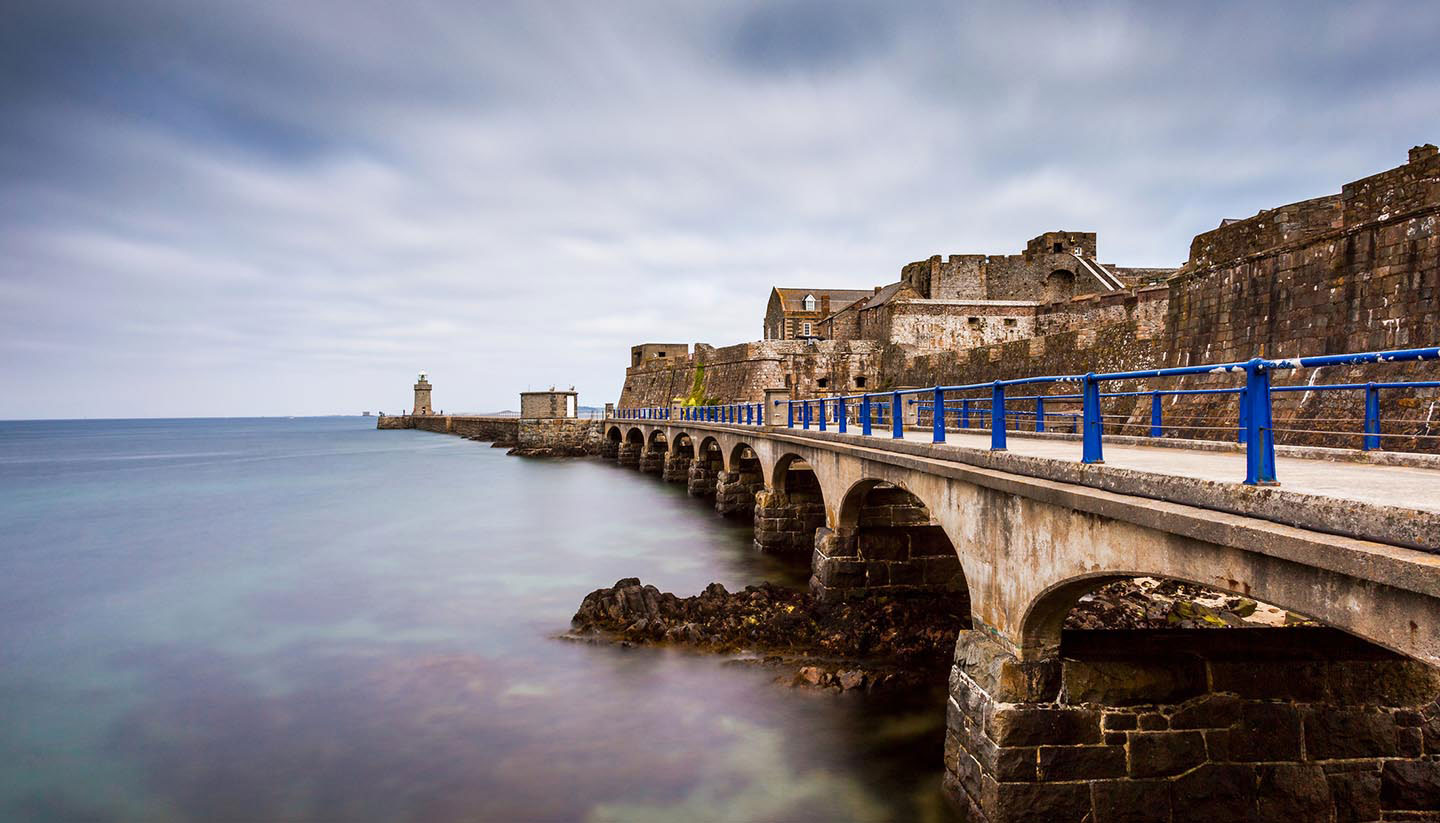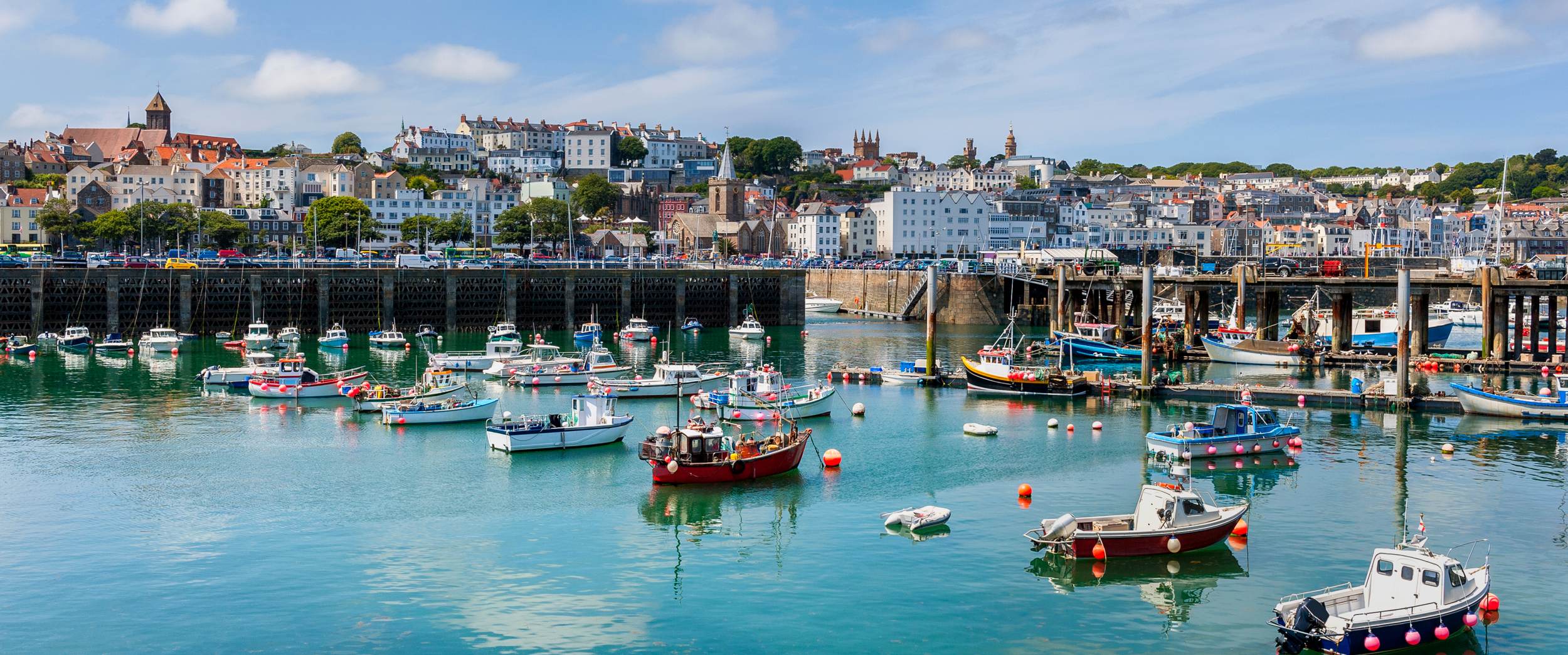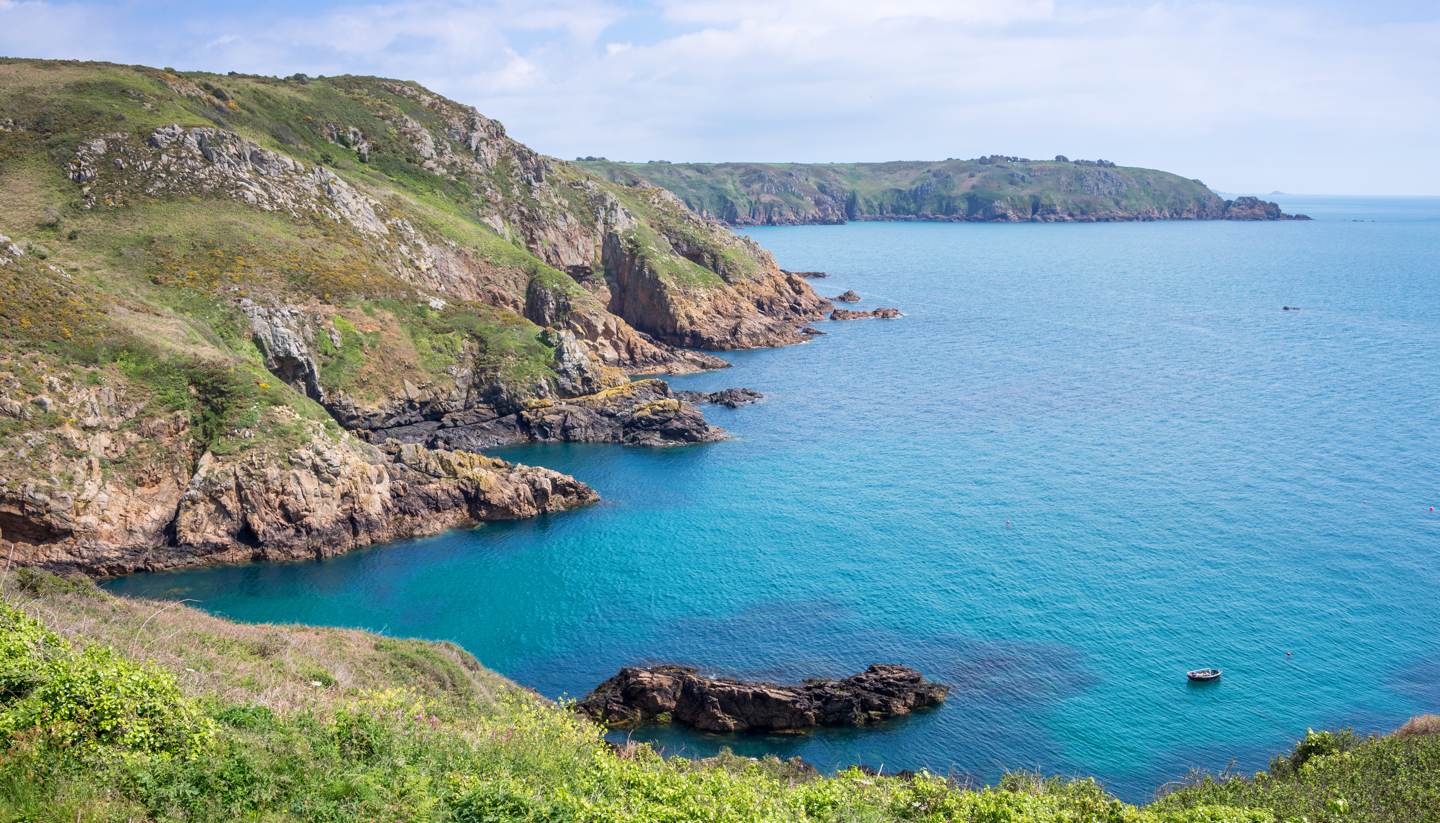Guernsey History, Language and Culture
History of Guernsey
Guernsey has some 1500 years of recorded history having been settled by Britons migrating to Brittany in the 5th century. Part of the medieval Duchy of Normandy, it became inextricably linked to Britain when William the Conqueror gained the crown in 1066. Later in 1204, when King John lost Normandy to France, Guernsey, along with other Channel Islands, remained loyal to the English monarchy.
Although occupied by Capetian French and by Aragonese mercenaries during the Hundred Years War, it remained in British hands until the German invasion during WWII. Many of the island's children were evacuated to mainland England, thus avoiding the harsh conditions under which those that remained had to live. The best-selling novel, The Guernsey Literary and Potato Peel Pie Society, which peels back the curtain on life in Nazi-occupied Guernsey, remains in print. A film adaptation is now a blockbuster.
Liberated in 1945, the Bailiwick of Guernsey, which includes the islands of Alderney and Sark, both of which have their own parliament, and the smaller islands of Herm, Jethou and Lihou, enjoys a large degree of self-government, with its own legal and political institutions.
Guernsey is a British Crown dependency but it is not part of the United Kingdom. It is also not part of the European Union.
Did you know?
• French author Victor Hugo lived on Guernsey for 15 years and the French Consulate is based at his former home, Hauteville House.
• Guernsey’s post boxes (since 1969) and telephone kiosks (since 2002) are painted blue, but are otherwise identical to their red counterparts in the UK.
• Many houses in the west of Guernsey have a piece of granite protruding from their walls. Known as "witches' seats", they are meant for witches to have a rest while flying around on broomsticks.
Guernsey Culture
Religion in Guernsey
Church of England, Presbyterian, Baptist, Congregational and Methodist.
Social Conventions in Guernsey
Handshaking is the customary form of greeting and normal social courtesies should be observed when visiting someone's home. It is not usual to start eating until everyone is served. If invited to someone's home, a small present such as flowers or chocolates is appreciated. Casual wear is acceptable in most places. Smoking is banned in enclosed public places.
Language in Guernsey
English is the official language, while French is still used for administrative purposes, and spoken by many islanders. Dgèrnésiais is the local language unique to Guernsey; it is a sort of Norman patois. Although usage is comparatively low, it is still spoken in some parishes, and there are some initiatives aimed at increasing the number of speakers.



